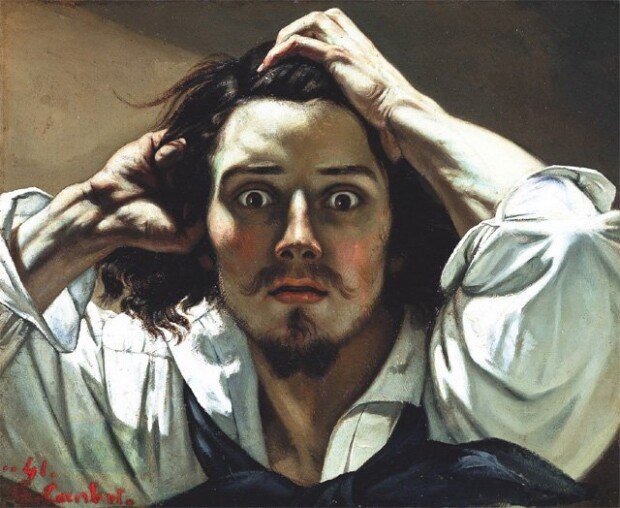The face of despair
The face of despair
Posted November. 12, 2020 08:17,
Updated November. 12, 2020 08:17

Despair is a state of lack of hope. We plunge into despair when our hard work does not pay off or there is no light at the end of the tunnel. French painter Gustave Courbet drew himself in despair in a painting. He was good-looking and talented. What could have possibly made him feel a sense of despair?
Courbet was born into a rich family in Ornans, but he considered himself a rebel. He moved to Paris to study law at 20 but decided to become an artist because he wanted to be free from conventions and obligations. Deeply interested in social issues, he captured the tragic reality of farmers and the working class in cities, which made him a pioneer of realism. Later he was heavily involved in the Paris Commune.
This self-portrait was drawn when he was 24. At the time, he was an unknown artist who was struggling to make ends meet and earn reputation. Courbet is wearing a loose white shirt and blue work clothing and sweeping his messy hair back with his hands. He is flushed as if he is shocked or upset with his eyes wide open looking directly at the audience. It is as if he is protesting against the world. The Salon, which was an official art exhibition, was a pie in the sky for him. With one failure after another, his anger towards the conservative art industry grew, but he could not give up on painting.
Hope, however, came back to him when it was least expected. He drew some of the most famous paintings in his career only four years after he finished his self-portrait. “A burial at Ornans” depicting a funeral in the countryside and “the Stone Breakers,” which illustrates laborers were displayed at the Salon, earning him the reputation as a leading realist painter.
However, Courbet was constantly faced with crises and frustration even after achieving success. He probably endured these moments reminding himself of the sense of despair he felt when he was young. He took this portrait even when he moved to Switzerland after the Paris Commune failed and kept it until the last day of his life. The memory of having hope again after a period of despair is probably what kept him strong through the ups and downs in his life.







